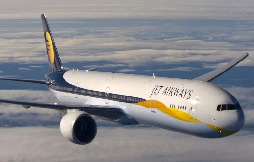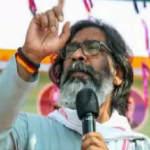The sad ending of Jet airways is here, as The Supreme Court ordered the liquidation of the bankrupt airline . The Supreme Court found that the successful bidder, Jalan Kalrock Consortium (JKC), could not comply with the conditions of the resolution plans. This marks the tragic end of Jet Airways after a prolong struggle to revive itself.
The supreme court evoked its special powers under the Article 142 of the Constitution. It decided to liquidate the airline after noting the unfulfilled obligations by JKC, outlining the resolution plan. These include infusing the first tranche of ₹350 crore, paying worker dues, and settling essential costs like airport dues.
The JKC resolution plan stated that it aimed at reviving operations and clearing the company’s debt. However, significant delays stretched the process into a five-year battle with creditors. The plan promised an infusion of funds, settlement of dues, and the revival of flight operations, but encountered obstacles in its execution. Despite a positive initial response, the prolonged delays have hindered the company’s financial recovery and operational revival.
Supreme Court’s Verdict Under Extra Special Powers
The Supreme Court set aside the National Company Law Appellate Tribunal (NCLAT) orders, which allowed the bankrupt airline Jet Airways ownership to be transferred to the Successful Resolution Applicant (SRA). This transfer of ownership was possible without complete payment in accordance with the resolution plan. The JKC successfully secured the bid, but could not fulfill the obligations required.
The NCLT Mumbai Bench was directed by the Court to appoint a liquidator and the amount of Rs 200 crores paid by the SRA stands forfeited.
The bench of CJI DY Chandrachud and Justices JB Pardiwala and Manoj Misra had reserved the judgment on October 16. The NCLAT order was challenged by SBI-led lenders of the cash-strapped Airlines. The lenders argued that JKC’s resolution plan was ‘unworkable’. Furthermre, It urged the court to use its inherent powers under Article 142 to liquidate the airline.
Today, the Supreme Court, set aside the March 2024 order of the NCLAT, which had upheld the transfer of ownership to JKC. It criticized the NCLAT for disregarding its previous rulings and for passing the order in favour of JKC without fully examining the facts.
“We have no doubt that the NCLAT acted contrary to settled legal principles…NCLAT incorrectly interpreted our order,” the Court observed in the judgment.
The Supreme Court concluded, the only viable option to help creditors recover their dues was through the liquidation.
Justice J.B. Pardiwala pronounced the ruling and he remarked that this case served as an eye-opener for the functioning of insolvency tribunals and for India’s Insolvency and Bankruptcy Code.
“This litigation is an eyeopener, has taught us many lessons about the IBC and the functioning of NCLAT,” Justice Pardiwala orally said before the pronouncement.



